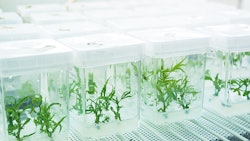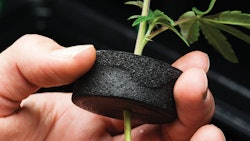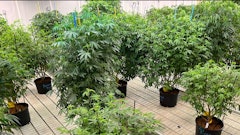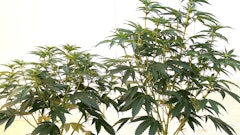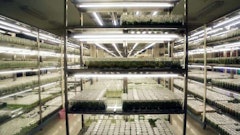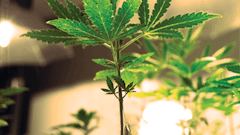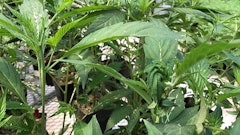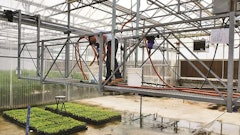
As the cannabis industry matures, consumers are beginning to place value in knowing which strain they are buying and the details of its origin.
Phylos Bioscience offers a plant sex test and genetic certification for cannabis, and its Phylos Galaxy provides a real-time picture of genetically certified plants and how they relate to one another, according to co-founder and CEO Mowgli Holmes. Genetic certification offers many benefits to cultivators, he says, from confirmation that they are growing the strains they think they are to protection of their intellectual property. Here, Holmes discusses the testing services the company offers, the Phylos Galaxy and how growers can use them to their advantage.
Cannabis Business Times: Can you tell me about the services Phylos Bioscience offers?
Mowgli Holmes: Right now, we have two genetic tests on the market. One of them is a genetic test for plant sex that lets growers identify their male plants … early and get rid of them early so they don’t have to take care of them for as long. The other one is a genetic identity test. … It tells you what plant you have, … how [it fits] into the whole population and what [it’s] related to. Sometimes it can tell you where [the plant] came from, and it can tell you how true breeding [it is].
CBT: Can you describe the process of genetic certification?
MH: Generally, people go online and they buy the test and we send out a kit, and the kit lets growers prepare a little legal sample. [They wash] a stem from a cured plant in hydroxypropyl repeatedly and [send] it to us, and the washing steps get rid of all the cannabinoids, and the stem itself is exempt from control under the Controlled Substances Act. That way they’ve prepared a sample that’s totally legal. We’ve found out a way to get enough DNA out of the woody little stem that we can sequence it.
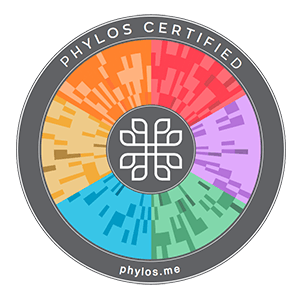
CBT: What are some benefits to having a plant genetically certified?
MH: The consumer’s benefit is that you know what you’re getting and can always get it again. … The main thing is if they find something that works, they need to be able to get it again. … This will let [them] go back to the same exact plant.
For growers, it’s partly a marketing tool and a promise they can make to consumers. It’s also for growers who are breeders. It’s a way to protect your IP. We don’t market it as a way for people to patent their plants, but it is a good way to make sure no one else can patent your plants, which is a sense of IP and is just as important. I think a lot of the people do it because they made interesting varieties and they want to document them and they want to make sure they aren’t restricted by other people trying to patent [plants].
CBT: What does a cultivator receive with genetic certification through Phylos Bioscience?
MH: In a way, it’s claiming your star in the Galaxy. You get an account on the Phylos website, and your variety gets position in the Galaxy, which is [an] interactive map. You get access to [a] genetic report and all the information that’s included there, [and] some marketing tools, which are the seals, and you can share the genetic report. … That’s it. We send you the box, you send in the sample, and then you get all this information and all these ways to share that information.
CBT: What does the Phylos Galaxy entail?
MH: Scientists haven’t gotten incredible at making a visualization [to] see how … different individuals are related to each other for humans or any other population. We used all the tools that were out there and population genetics to take all the genomic data we have about cannabis and put it into one visualization tool where people can fly around this three-dimensional universe and see exactly how things are related to each other.
In the Galaxy, dots are separated from each other by a lot of spaces if they’re genetically very different. They’re very close to each other if they’re genetically very similar. And when we can make first-degree relationships, like parent-child relationships, we can form a line between two nodes. … You get … this complex web, which represents the actual cannabis population, and it’s a dense way to convey a lot of information, and it’s really fun to play with.
CBT: What is included in the genotype report?
MH: It’s all the other information we can glean from the DNA. It tells you if we have any other clones of your plant, [or] genetically identical submissions to your plant. It tells you what all the closest relatives are [and] what the most distant relatives are. It tells you what your ancestral breakdown is in terms of the different populations in the Galaxy—it’s a visualized display of that—and there’s an indicator of how homozygous you are, which is how genetically stable a plant is and how true breeding it would be if you made seeds from it.
CBT: How does genetic certification help cultivators develop a stronghold in the market and a distinguished brand?
MH: In some ways, the answer to that is we’ll see how it works. I think our hope is that, given how competitive the market is now, … how much people are fighting to differentiate themselves and how much pressure there is on growers to have unique or interesting or valuable varieties, people will find that having a certified variety, a variety where what you say about it isn’t just what you say about it but it’s actually true, … matters a lot.
When we launched the Phylos certified [tool], we had 11 different grow operations that had fully certified all their catalogs and were rolling out dispensary partners where everything in the dispensary would be fully certified, and I think it will be a big differentiator. After a while, it won’t be a differentiator and it will just be a requirement, at least for high-end flower. People who are selling low-end flower or extracts that aren’t strain-specific, their customer base might never care. But anyone who cares about the identity of the plant they’re smoking or that their oil is coming from, I think that whole part of the market will care.
CBT: What is the Open Cannabis Project?
MH: That’s a nonprofit that we helped to start. We don’t run it, and they’re off doing their own thing now, but we just give all of our data to that group and they make it public. That is the reason why it’s effective protection against other people patenting your [plants] because we put the data into the public domain, and … it’s proof that your plant exists so no one else can patent it. The Open Cannabis Project, their goal is to block big companies from locking up control of cannabis using broad, restrictive patents.
Editor’s Note: This interview was edited for length and clarity.
Images courtesy of Phylos Bioscience











